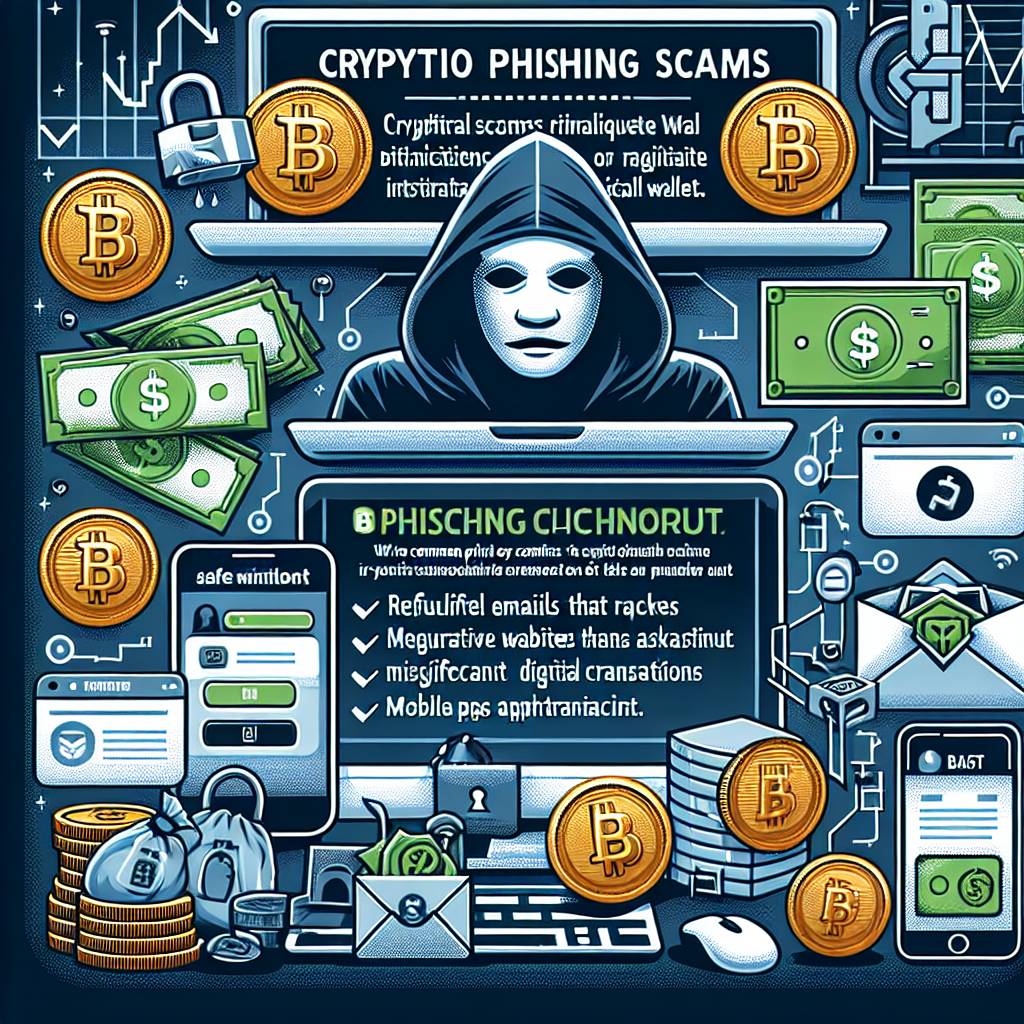What are the common crypto trading scams and how can I avoid them?
As a beginner in the world of cryptocurrency trading, I want to be aware of the common scams that exist in this industry. What are some of the most common crypto trading scams and what steps can I take to avoid falling victim to them?

3 answers
- One common crypto trading scam is the Ponzi scheme, where scammers promise high returns on investments but use funds from new investors to pay off older investors. To avoid this scam, it's important to do thorough research on any investment opportunity and be wary of promises that seem too good to be true. Additionally, never invest more than you can afford to lose. Another common scam is phishing, where scammers impersonate legitimate cryptocurrency exchanges or wallets to trick users into revealing their private keys or login credentials. To avoid falling for phishing scams, always double-check the URL of the website you're visiting, enable two-factor authentication, and never share your private keys or login credentials with anyone. There are also pump and dump schemes, where scammers artificially inflate the price of a cryptocurrency by spreading false information and then sell off their holdings at the peak, causing the price to crash. To avoid falling for pump and dump schemes, it's important to do your own research, rely on reputable sources for information, and be cautious of sudden price spikes. In general, it's important to stay informed, be skeptical of too-good-to-be-true offers, and only invest in projects and platforms that have a solid reputation and track record. Remember, if something seems too good to be true, it probably is.
 Jan 09, 2022 · 3 years ago
Jan 09, 2022 · 3 years ago - Crypto trading scams are unfortunately quite common in the industry. One of the most common scams is fake ICOs (Initial Coin Offerings), where scammers create a fake cryptocurrency and convince people to invest in it. To avoid falling for fake ICO scams, it's important to thoroughly research the project, check the team's credentials, and look for red flags such as unrealistic promises or lack of transparency. Another common scam is fake exchanges, where scammers create websites that look like legitimate cryptocurrency exchanges but are designed to steal users' funds. To avoid falling for fake exchange scams, always double-check the URL, read reviews from trusted sources, and use exchanges that have a proven track record. It's also important to be cautious of social media scams, where scammers impersonate well-known figures in the crypto industry and ask for money or personal information. To avoid falling for social media scams, always verify the identity of the person you're interacting with and never send money or personal information to someone you don't know or trust. By staying vigilant, doing thorough research, and using common sense, you can greatly reduce the risk of falling victim to crypto trading scams.
 Jan 09, 2022 · 3 years ago
Jan 09, 2022 · 3 years ago - At BYDFi, we understand the importance of protecting yourself from crypto trading scams. One common scam to be aware of is the fake giveaway scam, where scammers impersonate well-known cryptocurrency figures or companies and ask for a small amount of cryptocurrency in exchange for a larger amount. To avoid falling for fake giveaway scams, it's important to remember that legitimate giveaways do not require you to send any cryptocurrency first. Always be skeptical of unsolicited offers and verify the authenticity of the giveaway before participating. Another common scam is the fake investment platform, where scammers create websites or apps that promise high returns on investments but are designed to steal your funds. To avoid falling for fake investment platform scams, it's important to only use reputable and regulated platforms, do thorough research on the platform and its team, and be cautious of promises that seem too good to be true. Lastly, be cautious of fake wallets or wallet apps that are designed to steal your private keys or login credentials. Only use wallets that are recommended by trusted sources and double-check the app's developer before downloading. Remember, protecting yourself from scams is an ongoing process. Stay informed, stay skeptical, and always prioritize the security of your funds.
 Jan 09, 2022 · 3 years ago
Jan 09, 2022 · 3 years ago
Related Tags
Hot Questions
- 97
How does cryptocurrency affect my tax return?
- 95
What are the best digital currencies to invest in right now?
- 80
What is the future of blockchain technology?
- 72
What are the advantages of using cryptocurrency for online transactions?
- 58
How can I protect my digital assets from hackers?
- 40
How can I buy Bitcoin with a credit card?
- 35
Are there any special tax rules for crypto investors?
- 5
What are the best practices for reporting cryptocurrency on my taxes?
